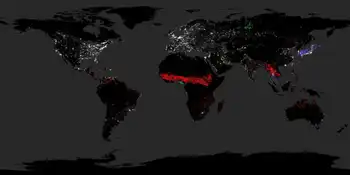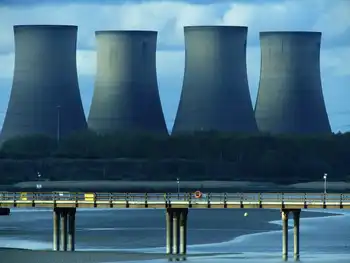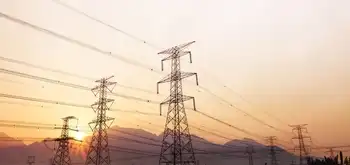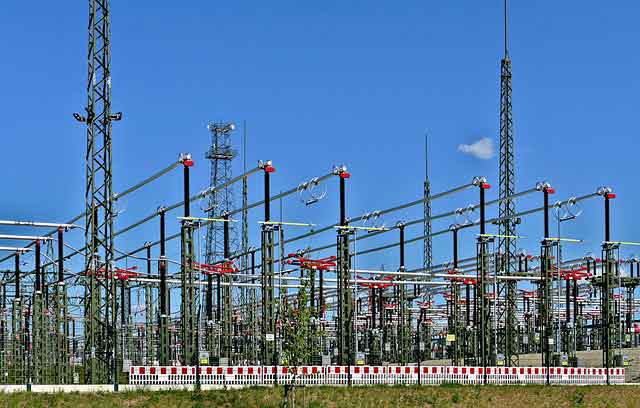U.S. Nuclear Groups Set Post-Japan Study
“We are frequently asked by the Wall Street community how much is this going to cost, and we simply don’t know yet,” Chip Pardee, chief operating officer for power generation at Exelon Corp. EXC and chairman of the industry’s Fukushima Response Steering Committee, said yesterday at a news conference in Washington.
The Nuclear Energy Institute, the Electric Power Research Institute and the Institute of Nuclear Power Operations introduced the panel yesterday. The 12-member committee will “learn the lessons” from Japan’s nuclear crisis, which began three months ago tomorrow, and “apply them at our plants,” said Tony Pietrangelo, the energy institute’s senior vice president and chief nuclear officer.
U.S. reactors are getting closer scrutiny from regulators after a magnitude-9 earthquake and tsunami on March 11 knocked out power lines and backup generators at Tokyo Electric Power Co.Â’s Fukushima Dai-Ichi plant, about 135 miles 217 kilometers north of Tokyo.
Without electricity to run cooling systems, some fuel rods overheated and melted, causing fires, explosions and radiation leaks in the worst nuclear incident since the 1986 Chernobyl disaster. A Nuclear Regulatory Commission task force conducting a 90-day review of U.S. reactor safety after the Japan earthquake is scheduled to release a report next month.
Tougher regulations from the NRC aimed at preventing disasters similar to JapanÂ’s may cost the U.S. nuclear industry more than $10 billion, according to a Bloomberg Government study released in April.
‘Laughable’ Panel
The industry-led panel is “laughable” and U.S. officials shouldn’t give any weight to its findings, said Damon Moglen, a climate and energy project director for Friends of the Earth, a Washington-based group that opposes nuclear power.
“The nuclear industry owns an alarming track record of ignoring safety flaws and downplaying lapses, and it does not deserve the trust of regulators or the public,” Moglen said in an e-mail.
The U.S. nuclear industry believes its plants are safe, Pietrangelo said. The new panel, which includes representatives from operators such as New Orleans-based Entergy Corp. ETR and Xcel Energy Inc. of Minneapolis, will “triple check” existing safety procedures to find improvements, he said.
“We must continually evolve and improve standards of practice and adapt to events and new information,” he said.
‘Credible Regulator’
The industry’s post-Fukushima review will aid the work of the NRC, which is a “very strong, credible regulator,” he said.
“We want to work with our regulator,” he said.
The Fukushima committee will examine a range of safety issues, such as the ability of U.S. operators to cope with a “station blackout,” when power lines are cut and backup generators fail, Exelon’s Pardee said.
Storage pools filled with spent radioactive fuel rods will also be checked to make sure they wonÂ’t overheat during an accident, said Pardee, whose Chicago-based employer is the largest U.S. nuclear-plant operator.
The industry panel will assess how companies with nuclear reactors can standardize some disaster response plans, so they can “help one another” during a crisis, Pardee said. Some improvements may include the use of standard-sized fire hoses at nuclear plants and common radio frequencies, he said.
Emergency Response
The panel also will examine whether emergency-response plans must be changed to deal with a “multi-unit event,” Pardee said. Fukushima has six reactors and three units suffered meltdowns, the operator of the Japanese plant said.
The review will check safety systems at nuclear plants against the most recent estimates for “external events,” such as earthquakes and floods, according to a statement from the three power-industry groups.
The industry panel will work until at least the end of this year, according to the statement. The task may take longer because many details of the Fukushima disaster wonÂ’t be known for months, Pardee said.
“This will be a fairly protracted effort,” he said.
Since the earthquake in Japan, the NRC has inspected how U.S. plants are prepared to keep radioactive fuel rods from overheating and melting after “extreme events,” such as natural disasters and terrorist attacks. The NRC also studied the nuclear industry’s “severe accident” plans for bringing reactors under control if a meltdown can’t be prevented.
Agency inspectors have so far concluded U.S. nuclear plants are meeting safety regulations, with a few flaws in disaster- response preparations.
Almost one in five nuclear plants needed to improve plans for preventing meltdowns after large fires, explosions, electricity blackouts or extreme floods, the NRC said. While all nuclear plants have severe-accident guidelines, almost two in five donÂ’t carry out drills on bringing a meltdown under control, according to the NRC.
Related News

Tackling climate change with machine learning: Covid-19 and the energy transition
LONDON - The impact of Covid-19 on the energy system was discussed in an online climate change workshop that also considered how machine learning can help electricity planning in Africa.
This year’s International Conference on Learning Representations event included a workshop held by the Climate Change AI group of academics and artificial intelligence industry representatives which considered how machine learning can help tackle climate change.
Bjarne Steffen, senior researcher at the energy politics group at ETH Zürich, shared his insights at the workshop on how Covid-19 and the accompanying economic crisis are affecting recently introduced ‘green’ policies. “The crisis hit…





